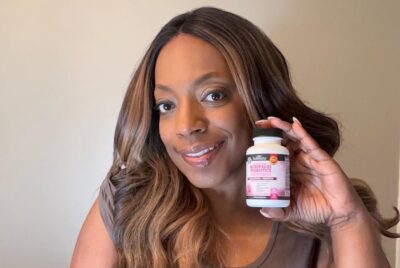How to Increase Sex Drive during Menopause
We may earn a commission for purchases made using our links. Please see our disclosure to learn more.
Introduction
Hello there! As someone who is passionate about embracing the many stages of life with enthusiasm and joy, I want to share some valuable insights on a topic that is often overlooked and misunderstood – how to increase sex drive during menopause. Menopause is a natural phase in a woman’s life, and while it brings about significant changes, it doesn’t mean saying goodbye to a fulfilling and enjoyable sex life. In this article, we’ll explore the benefits of maintaining a healthy sex drive during menopause, and I’ll provide you with helpful suggestions to revitalize your intimate experiences.
Understanding Menopause and Its Effects on Sex Drive
Before we delve into the ways to enhance libido during menopause, let’s grasp the fundamentals. Menopause marks the end of a woman’s reproductive years and is officially confirmed when she hasn’t had a menstrual period for twelve consecutive months. This transition is primarily driven by hormonal changes, specifically a decline in estrogen and progesterone levels.
As hormone levels fluctuate, it can have various effects on a woman’s body, including changes in sexual desire. Reduced estrogen can lead to vaginal dryness, discomfort, and a decreased blood flow to the genital area, making arousal and pleasure more challenging. Understanding these effects is crucial in addressing and managing them effectively.
Benefits of Maintaining a Healthy Sex Drive during Menopause
Before we dive into the tips, let’s highlight the numerous advantages of nurturing your sex drive during menopause.
Physical Benefits
Engaging in sexual activity and experiencing regular orgasms can have positive effects on your physical health. It can improve blood circulation, boost your immune system, and even alleviate pain through the release of endorphins. Additionally, regular intimacy can contribute to better sleep patterns and reduced stress levels.
Emotional Benefits
Sexual intimacy releases oxytocin, often referred to as the “bonding hormone.” This fosters emotional connections, strengthens the bond with your partner, and promotes a sense of security and happiness. Embracing intimacy during menopause can help combat mood swings and increase overall emotional well-being.
Strengthening Relationships
Intimacy is a crucial aspect of any relationship. By maintaining a healthy sex life during menopause, you and your partner can navigate this phase together, reinforcing your emotional connection and creating a deeper sense of trust and support.
Tips to Increase Sex Drive during Menopause
Now that we’ve explored the benefits, let’s jump into some practical tips to revitalize your sex drive during menopause.
Communicate with Your Partner
Communication is key in any relationship, especially during menopause. Talk openly with your partner about the changes you’re experiencing and your desires. Creating a safe space for open dialogue can lead to understanding and finding solutions together.
Prioritize Self-Care and Well-Being
Self-care is paramount during menopause. Prioritize activities that promote overall well-being, such as regular exercise, meditation, or indulging in hobbies you love. When you feel good about yourself, it positively impacts your confidence and desire for intimacy.
Explore New Forms of Intimacy
Menopause offers an opportunity to explore different forms of intimacy with your partner. Focus on emotional connections, cuddling, and non-sexual touch, which can be just as fulfilling and nurturing.
Consider Hormone Therapy or Supplements
If hormonal changes significantly impact your sex drive, consider hormone therapy or natural supplements after consulting with your healthcare provider. These can help restore hormonal balance and improve your libido.
Address Any Underlying Health Issues
Certain health conditions or medications may affect your sex drive. Addressing these issues with your healthcare provider can lead to solutions that enhance your sexual experience.
Healthy Lifestyle Habits to Support Libido
A healthy lifestyle plays a pivotal role in supporting your libido during menopause.
Regular Exercise and Its Impact on Sex Drive
Physical activity not only boosts your energy levels but also increases blood flow to the genital area, improving arousal and sexual response. Engaging in regular exercise, such as walking, yoga, or dancing, can have a positive impact on your sex life.
Balanced Diet for Hormonal Balance
Eating a balanced diet rich in fruits, vegetables, and whole grains can help maintain hormonal balance. Additionally, certain foods, such as avocados and almonds, contain nutrients that support sexual health.
Managing Stress and Its Influence on Libido
Stress can dampen sexual desire. Find ways to manage stress, such as mindfulness practices, deep breathing, or spending time in nature. Reducing stress levels can make a significant difference in your libido.
Importance of Quality Sleep
Adequate sleep is essential for overall well-being, including a healthy sex drive. Prioritize a consistent sleep schedule and create a relaxing bedtime routine to improve the quality of your sleep.
Natural Remedies and Herbs to Boost Libido
Exploring natural remedies and herbs can be a complementary approach to enhancing your sex drive.
Ginseng
Ginseng is an adaptogenic herb that may help reduce stress and increase energy levels, potentially leading to improved sexual desire and performance.
Maca Root
Maca root is a well-known aphrodisiac that may increase libido and enhance sexual function in both men and women.
Black Cohosh
Black cohosh has been traditionally used to alleviate menopausal symptoms, including those that impact sexual health.
Tribulus Terrestris
Tribulus terrestris is believed to boost testosterone levels in women, potentially increasing sexual desire and pleasure.
The Role of Emotional Intimacy in Enhancing Sex Drive
In addition to physical factors, emotional intimacy plays a significant role in maintaining a healthy sex drive during menopause.
Building Emotional Connections with Your Partner
Emotional intimacy involves understanding, trust, and vulnerability with your partner. Cultivate emotional connections by spending quality time together and engaging in meaningful conversations.
Overcoming Psychological Barriers
Menopause can bring about psychological challenges, such as body image concerns or performance anxiety. Seek professional help if needed to address and overcome these barriers.
Seeking Professional Help If Needed
If changes in your sex drive significantly impact your well-being and relationship, consider seeking the support of a therapist or counselor who specializes in sexual health and menopause.
The Importance of Foreplay and Stimulation
Foreplay and sexual stimulation are vital components of a satisfying sexual experience.
The Role of Foreplay during Menopause
Foreplay can enhance arousal and increase natural lubrication, addressing vaginal dryness and discomfort.
Enhancing Arousal and Pleasure
Exploring different forms of stimulation, such as erotic literature, adult toys, or sensual massages, can help enhance arousal and pleasure.
Exploring Different Sexual Activities
Embracing a variety of sexual activities can revitalize your intimate experiences.
Trying New Things in the Bedroom
Be open to trying new things in the bedroom, discovering what brings pleasure to you and your partner.
Embracing Intimacy beyond Penetrative Sex
Intimacy extends beyond penetrative sex. Focus on connecting with your partner emotionally and sensually, embracing pleasure in different ways.
Dealing with Vaginal Dryness and Discomfort
Vaginal dryness is a common concern during menopause. Address this issue with care and sensitivity.
Understanding Vaginal Changes during Menopause
Reduced estrogen levels can lead to vaginal dryness and thinning of vaginal tissues. Understanding these changes can help you find appropriate solutions.
Using Lubricants and Moisturizers
Personal lubricants and vaginal moisturizers can alleviate discomfort and enhance pleasure during sexual activity.
Addressing Relationship Challenges
Open communication and support are vital in addressing relationship challenges during menopause.
Open Communication about Changing Desires
Discuss any changes in desires openly with your partner, fostering understanding and adapting to each other’s needs.
Seeking Support Together
If you encounter difficulties in your intimate relationship, consider seeking support from couples’ counseling or sex therapy.
Overcoming Body Image Concerns
Body image concerns can affect self-confidence and sexual desire during menopause.
Embracing Self-Confidence
Celebrate your body and embrace self-confidence. Remember that true intimacy is about connection and not solely physical appearance.
Shifting Focus to Pleasure and Connection
Shift the focus from appearance to pleasure and emotional connection during intimate moments with your partner.
Myths and Misconceptions about Sex during Menopause
Let’s challenge some common myths and misconceptions surrounding sex during menopause.
Challenging Societal Attitudes
Society often perpetuates unrealistic expectations about aging and sexuality. Challenge these attitudes and embrace your unique journey.
Normalizing Menopausal Sexual Experiences
Remember that menopausal experiences vary from person to person. Normalize your experience and seek what works best for you.
Consulting with Healthcare Professionals
If you encounter persistent challenges in your sex drive during menopause, consider consulting with healthcare professionals.
When to Seek Medical Advice
If menopausal symptoms significantly impact your daily life or intimate relationship, seek guidance from a qualified healthcare provider.
Available Treatment Options
Hormone therapy, counseling, or other medical interventions may be available to address specific concerns.
Conclusion
Menopause is a transformative phase of life that can be navigated with grace and positivity. By understanding the effects of menopause on sex drive and adopting healthy lifestyle habits, you can embrace intimacy and maintain a fulfilling sexual life. Remember that communication, emotional intimacy, and exploring new forms of pleasure are essential in enhancing your sex drive during menopause. Embrace this chapter with enthusiasm and curiosity, and let it be a time of renewed passion and connection with your partner.
FAQs (Frequently Asked Questions)
Can menopause affect sexual desire in all women?
Menopause can impact sexual desire differently in each woman. Some may experience a decrease in libido, while others may not notice significant changes. It’s essential to communicate with your partner and seek professional help if needed.
What can I do if I’m experiencing painful intercourse during menopause?
Painful intercourse is a common concern during menopause due to vaginal dryness. Using water-based lubricants, vaginal moisturizers, and taking things slowly during foreplay can help alleviate discomfort.
Are there natural supplements that can boost my sex drive during menopause?
Yes, some natural supplements like maca root and black cohosh have been traditionally used to enhance libido during menopause. However, it’s essential to consult with a healthcare provider before trying any new supplement.
Can emotional intimacy alone satisfy sexual desires during menopause?
Emotional intimacy is a vital aspect of a satisfying sex life, but it may not be the sole factor in satisfying sexual desires. Combining emotional intimacy with open communication and exploration of different sexual activities can enhance your overall experience.
Is it normal to have a lower sex drive as I age?
Yes, a decrease in sex drive can be a natural part of the aging process. However, maintaining a healthy lifestyle, open communication, and seeking support if needed can help address and manage changes in libido.




